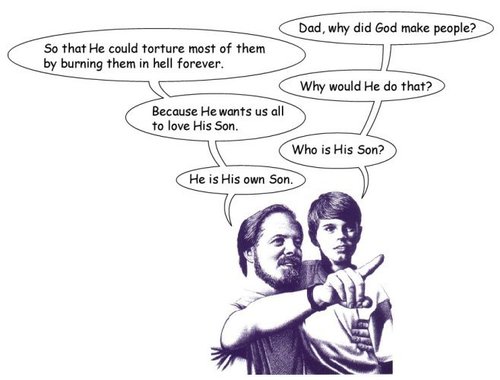BrotherMichaelSky
Well-Known Member
I see the cart before the horse in this thread - even though it looks to have been a simple exercise in gathering threes.....
The Doctrine of the Trinity was created by a worldly institution.... it has very little bearing on the Triune concept of Godhead - other than the Triune concept being the source for the creation of more dogma....
In my opinion the concept is simply trying to explain how our Father's Laws are set up.
by way of explanation :
the highest level of creation contains the ONE - one concept explains God on this level
next level down ( i prefer octave - seems appropriate to me ) there are multiple Laws being observed, which explain Our Father...
next octave of lower vibration, there are a great many Laws which must be understood to understand our Father.
and each level below that adds more differentiation, and much more must be understood before a picture of Our Father emerges....
and so on, and so on......
so the concept is trying to explain that there is a specific direction from which to approach Our Father if we truly want to understand him.... we must seek the connection within - which has a direct connection to Our Father, so that we may find Him in simplicity.
The Doctrine of the Trinity was created by a worldly institution.... it has very little bearing on the Triune concept of Godhead - other than the Triune concept being the source for the creation of more dogma....
In my opinion the concept is simply trying to explain how our Father's Laws are set up.
by way of explanation :
the highest level of creation contains the ONE - one concept explains God on this level
next level down ( i prefer octave - seems appropriate to me ) there are multiple Laws being observed, which explain Our Father...
next octave of lower vibration, there are a great many Laws which must be understood to understand our Father.
and each level below that adds more differentiation, and much more must be understood before a picture of Our Father emerges....
and so on, and so on......
so the concept is trying to explain that there is a specific direction from which to approach Our Father if we truly want to understand him.... we must seek the connection within - which has a direct connection to Our Father, so that we may find Him in simplicity.

